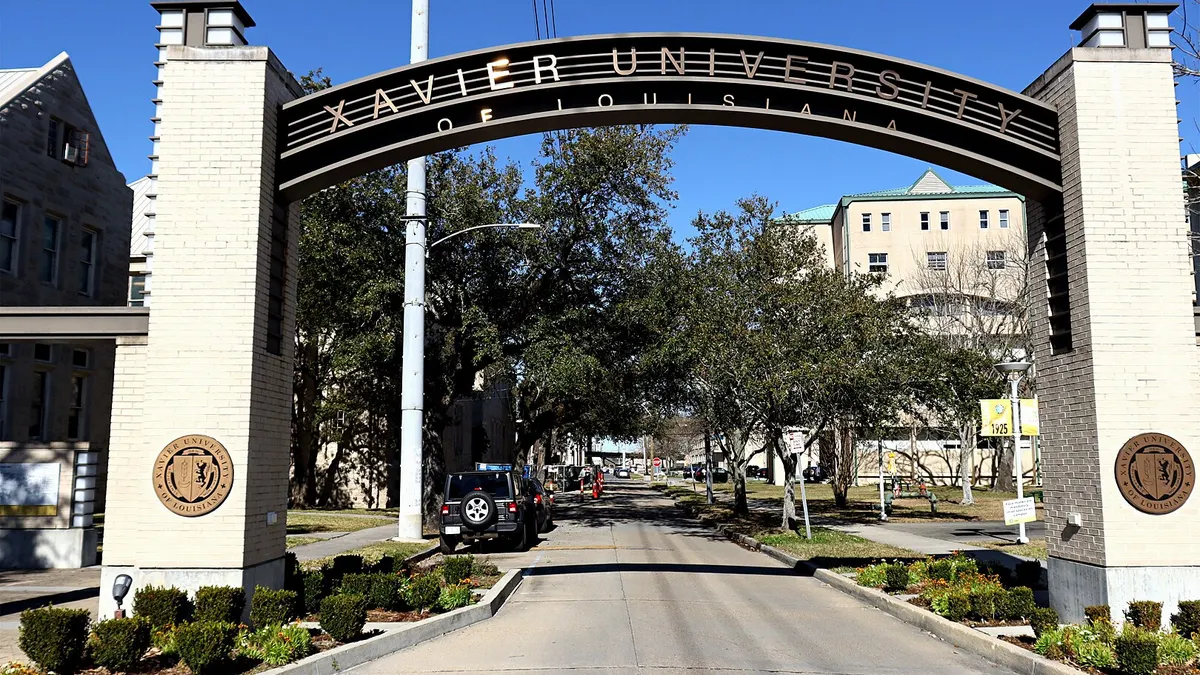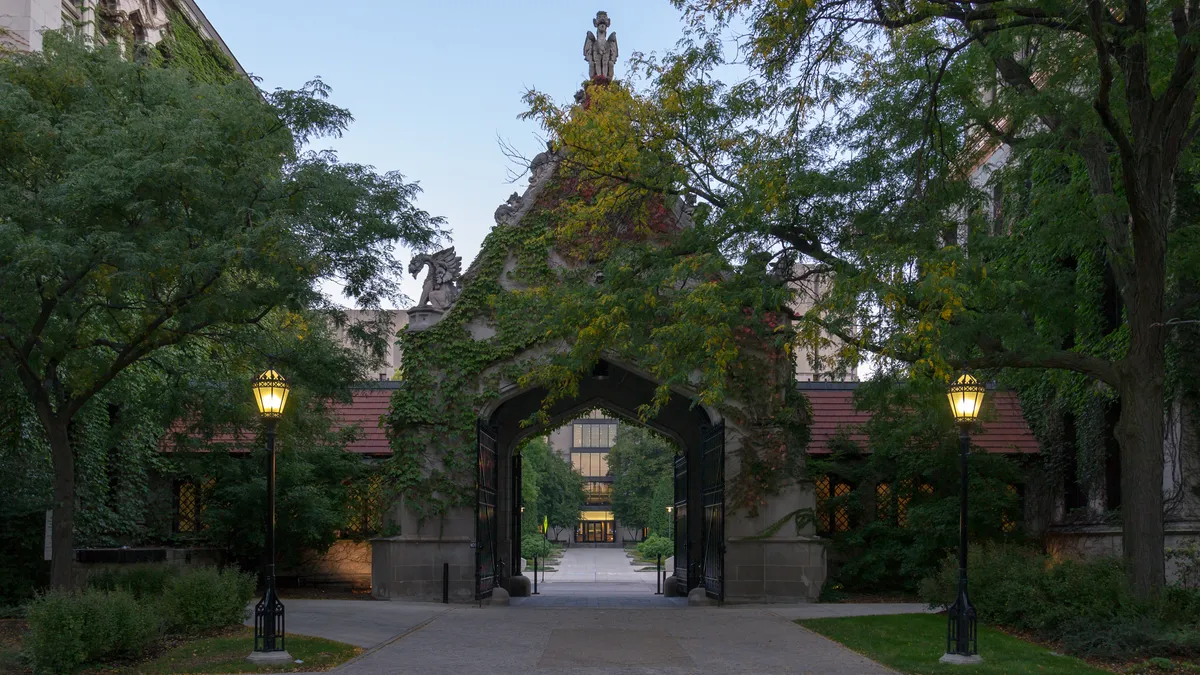Dive Brief:
- A tuition grant program designed to help Iowa students from low-income households earn degrees from the state's private institutions is yielding tremendous results. The Des Moines Register reports that the Iowa Tuition Grant program, established in 1969, has helped more than 75% of recipients to graduate within six years over the last decade.
- The state averages $46 million in total aid to students attending non-public colleges and universities, with 10 institutions averaging above an 80% six-year graduation rate over the measured period. According to Iowa College Aid data, program participants outpace other student demographic groups, even some from high-earning households, as the most likely to earn a degree within six years.
- Eligible students received a maximum award of $5,650 in 2016-2017 academic year, a measure that drew opposition last year from some in the state's public college system to pursue access to the funding. The measure was defeated in the state's House of Representatives.
Dive Insight:
State-based tuition assistance programs may help many colleges and universities avoid the looming higher education bubble burst if lawmakers can be convinced of a bipartisan benefit to helping lower-income students earn degrees, especially in states where they may not find healthy job markets. Regardless of political affiliation, most voters agree that college is too expensive for many students and they would like governments to do more to offset costs.
Knowing this reality, and the impact that higher education has on workforce development, more states are slowly increasing appropriations to public colleges and universities. When matched with lower financial obligations for federal regulatory compliance and maintenance of Pell Grant levels, the result could be higher standards for scholarship support to low-income students.
But states have to be careful, and institutions watchful, of the awarding trends from such merit and need-based programs. Arkansas, among other states, is making news for low-income students losing out to more affluent peers in scholarship lotteries and programs. Programs like these, or like Louisiana's TOPS program, can generate negative publicity and compromise public trust.







